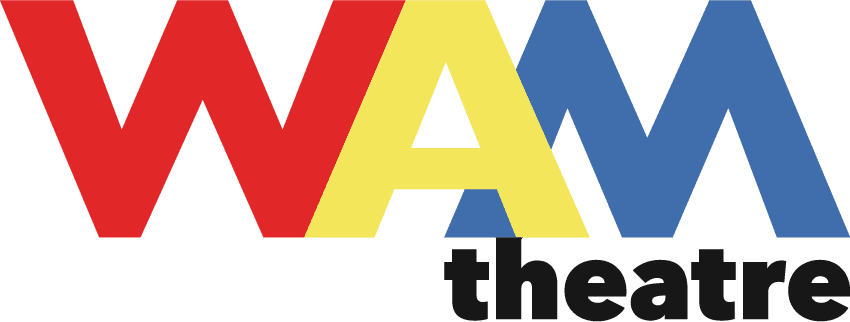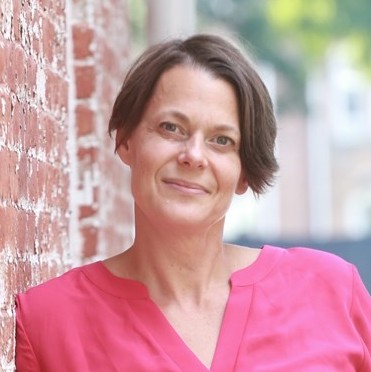The 2019 AD Summit Planning Committee was:
Susan Booth, Artistic Director, Alliance Theatre | Atlanta, GA
Raymond Bobgan, Executive Artistic Director, Cleveland Public Theatre | Cleveland, OH
Snehal Desai, Producing Artistic Director, East West Players | Los Angeles, CA
Marshall Jones, Producing Artistic Director, Crossroads Theatre Company | New Brunswick, NJ
Diane Rodriguez, Associate Artistic Director, Center Theatre Group | Los Angeles, CA
Hana Sharif, Artistic Director Designate, Repertory Theatre of St Louis | St Louis, MO
Kristen’s AD Summit Speech
A few weeks ago, a student in an arts administration leadership class asked me if white people needed to have something traumatic happen in their life in order for them to have an awakening about their role in the oppression in the world.
As Producing Artistic Director of WAM Theatre, I had been invited to speak in the class about WAM’s work at the intersection of Arts and Activism. The student asked me that question as they had watched my recent TEDx talk, entitled ‘The Discomfort of Community’ where I share that a personal upheaval was the catalyst into an awakening born out of discomfort.
I would posit that our resistance to embracing discomfort is the major obstacle that those of us with white privilege need to confront if we truly want to help dismantle systems of oppression and help build communities of empathy, equity and belonging.
In the past couple of years, WAM has been starting to really understand what it means to step bravely into an activist space. And what that means in terms of our responsibility to speak up. When do I speak up? When will speaking up cause harm? When will speaking up open up dialogue? Can I handle the consequences of speaking up? Can I handle the consequences of not speaking up? Is it my right to speak up? How can I respectfully ask for consent before speaking up because it may be the case that a person on the receiving end of an inappropriate comment doesn’t want me to speak up for them in that moment. Should I speak up without consent? And, How much of speaking up is about me showing that I’m a good white ally and how much is actually about the work? There are simply SO MANY QUESTIONS that go through the mind when something happens that feels inappropriate. And because those of us with privilege have so little practice speaking up in those moments, we often choose not to. And that results in the continuation of behavior that is not ok.
WAM’s stepping into active activism has taken many forms:
We are the first major arts organization in the Berkshires of Western Massachusetts to insert a land acknowledgement into our curtain speech – watching looks of confusion and even the occasional eye-roll from audience members. And realizing, for our part, that doing the land acknowledgement is only a first step and doesn’t really mean anything unless we invest in building relationships with our local Native peoples.
We are also opening up the women-focus of our organization to be more gender-inclusive in everything from our casting policy to our educational programming to the characters on our stages. Adding the ‘what’s your pronoun’ question to the audition form has caused some pretty funny moments for us to consider- anyone in their 20’s and 30’s generally writes he/she or they, people in their 40’s and 50’s generally ask what it means with interest and older actors tend not to even ask but to write Mr., Mrs or Miss. This summer, our very gender-savvy Teen Ensemble will be collaborating with a brand new Elder Ensemble comprised of women over 65. The rehearsal space will be a potential for longer conversation about gender identity within these populations who rarely get to create together.
The most transformative way we have stepped into active activism has been a complete re-framing of the community engagement around our upcoming Fall production of PIPELINE by Dominique Morisseau. Thanks to the Berkshire Taconic Community Foundation, we are producing the play in partnership with a local racial-justice organization, BRIDGE. Rather than inviting them in on the tail end to facilitate post-show discussions after all the production decisions had been made, we positioned ourselves right from the beginning as being in service to them as one spoke in the wheel of all the work BRIDGE is doing in our community already. From that moment on, we have been working together on every stage of production: from the selection of the play onwards. We started our partnership with a three day retreat in the Catskills and I have to say, I wish I could start every artistic process that way- not just because it was in the Catskills, but because it set the tone for our partnership, allowing us to build personal relationships and have hard conversations about the culture of white supremacy in which we operate our theatre company and are trying to challenge. And we were able to have those conversations in a casual setting where time was fluid which was key.
In closing, as I said to the student who asked me that question, it is a shame that so many white people seem to have to go through a personal trauma in order for our head to pop out of the sand. I would like to think it isn’t so. For me, it was a turning point. And now, the more I stand in discomfort, the more I learn how the visceral experience of doing so is an integral part of my responsibility as an artistic leader and woman of influence. The first time I did the land acknowledgement, my hands were shaking and I had a zillion thoughts about cultural appropriation or about whether my team and I had done enough research. Last week, when I named an inappropriate behavior in public, my hands weren’t shaking any less, but I knew that those feelings in my body that I now recognize as discomfort are the cues not for me to be silent, but for me to instead find a way to speak up. If I want WAM to be a change-agent then I must continue to turn the lens to myself and to how much I have to learn about how I contribute to oppression and to how I and the WAM team can use our privilege to help turn that oppression into opportunity.

